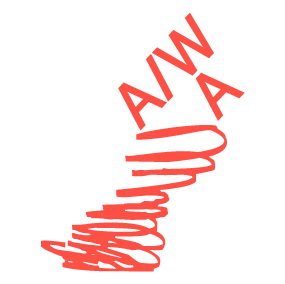
A session exploring more-than-human relating, sensing and communicating. Thinking with organic and synthetic nonhuman collaborators—including wet-, soft- and hardware—what are the implications of microbial and geopolitical collaborations in the arts? The evening will consist of a discussion with Jenna Sutela and screenings of three of her videos:
nimiia cétiï, (2018), an experiment in machine learning and interspecies communication, featuring the extremophilic Bacillus subtilis nattō bacterium.
Holobiont, (2018), which considers the idea of embodied cognition on a planetary scale, zooming from outer space to inside the gut.
RI JIRI I O WA NU RU DAINICHI T-1000, (2016), an audiovisual mantra juxtaposing Physarum polycephalum, the single-celled yet “many-headed” slime mold with two cultural references, a Buddhist mandala depicting a non-anthropocentric worldview as well as the self-configuring T-1000 robot from the Terminator.
Material collected by Marleen Boschen and Charles Pryor as part of research visits to the Millennium Seed Bank and the John Innes Centre for Plant and Microbial Science will also be presented throughout the evening.
Thinking through what it means to work ‘scientifically’ we will approach processes such as fermentation, dormancy and germination as forms of organic labour and sensory agency. What does it mean to speak for more-than-human collaborators, to listen, to represent, to embody?
Artist Jenna Sutela works with words, sounds, and other living materials. Her installations and performances seek to identify and react to precarious social and material moments, often in relation to technology. Sutela’s work has been presented at museums and art contexts internationally, including Guggenheim Bilbao, Museum of Contemporary Art Tokyo, and Serpentine Galleries. She is a Visiting Artist at The MIT Centre for Art, Science & Technology (CAST) in 2019-20.
Marleen Boschen is a PhD researcher at Goldsmiths University, London working on seed saving and banking practices as sites of more-than-human vulnerability and resilience. She is also currently co-curating a project on agro-poetics at SAVVY Contemporary, Berlin.
Charles Pryor is an artist and environmental researcher. He has taught permaculture workshops for unMonastery in Kokkinopilos, at Goldsmiths University, as well as working alongside Cityplot. Exhibitions and events include Storytelling in the Anthropocene at Tenderbooks, N — E º W ˝( S ) Season School in Berny-Rivière, Conditions for Ongoingness at Jupiter Woods, Feral Kin at Auto Italia. Charles is currently studying a postgraduate degree in Climate Change and International Development at University of East Anglia.